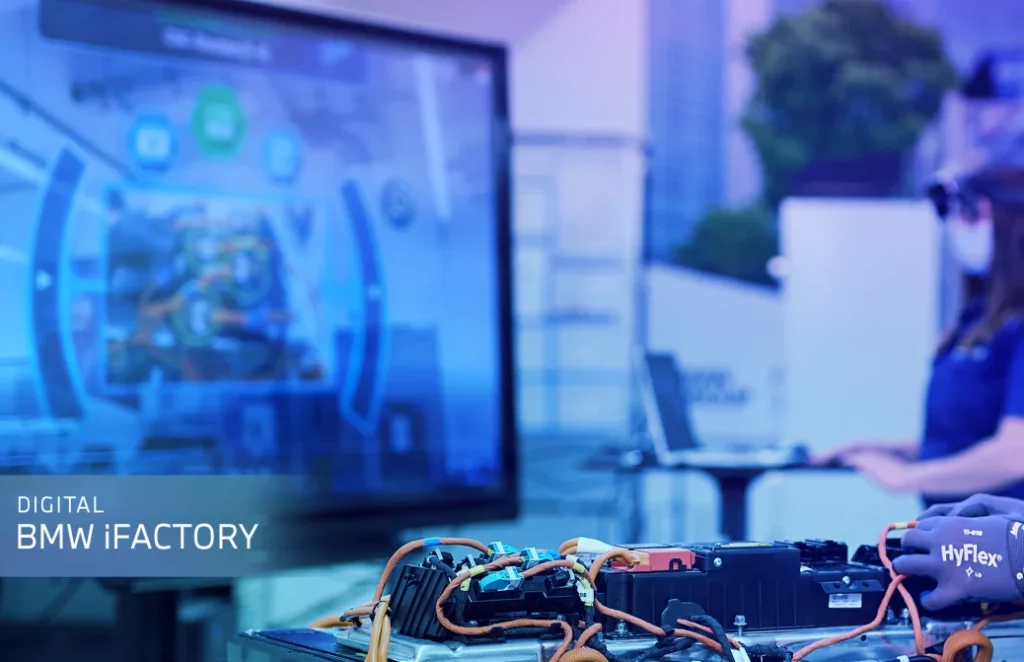ERP, MES, and IoT in BMW’s Digital Transformation
Role of ERP in BMW’s Digital Transformation
Enterprise Resource Planning (ERP) systems serve as a comprehensive resource management tool, enabling businesses to manage all aspects of their production processes. From planning and inventory management to finance and human resources, BMW has leveraged ERP to achieve the following:
-
Integrated Production Data Management: BMW’s ERP system integrates its entire production and business processes, providing a holistic view of operations for enhanced efficiency optimization.
-
Automated Warehouse and Production Management: By implementing ERP, BMW minimizes human error and strengthens accurate production planning capabilities. This is particularly crucial in the automotive industry, where precision is paramount.
-
Supply Chain Integration: The ERP system enables BMW to manage its entire supply chain, from raw material procurement to final product distribution, creating a seamless value chain.
Impact of MES in BMW’s Digital Journey
Manufacturing Execution Systems (MES) provide real-time monitoring and control over production activities within the factory. BMW’s application of MES brings forth several notable benefits:
-
Real-Time Production Monitoring and Control: BMW’s MES system collects data from machinery and equipment, allowing real-time monitoring of every production aspect. This enables timely issue detection and immediate adjustments, minimizing downtime.
-
Optimized Machine and Labor Performance: BMW utilizes MES to analyze the efficiency of individual machines and labor workflows, enabling adjustments for overall productivity enhancement.
-
Product Quality Tracking: MES empowers BMW to monitor product quality at each production stage, ensuring compliance with the stringent standards of the automotive industry.
Leveraging IoT in a Leading Automaker’s Transformation
The Internet of Things (IoT), with its ability to connect millions of devices within the factory, has revolutionized BMW’s production:
-
Remote Monitoring and Predictive Maintenance: IoT enables BMW to remotely monitor the operation of critical machinery within its factories. Sensor data facilitates predictive maintenance, preventing potential breakdowns before they occur.
-
Real-Time Production Data Integration: IoT interconnects BMW’s entire system of equipment and machinery, providing real-time data to relevant departments. This optimizes production processes and enhances efficiency.
-
Advanced Data Analytics: Sensor data from connected devices empowers BMW to conduct advanced analyses, optimizing production processes, minimizing waste, and increasing overall productivity.
Results and Impact of BMW’s Digital Transformation
The synergy of ERP, MES, and IoT has positioned BMW as a leading innovator in the automotive industry:
-
Increased Production Efficiency: Implementing ERP, MES, and IoT enables BMW to enhance production efficiency, minimize waste and downtime, and optimize material usage.
-
Enhanced Agility: Real-time data from MES and IoT systems allows BMW to adapt its production processes swiftly to meet evolving market demands.
-
Reduced Operating Costs: By leveraging ERP, MES, and IoT, BMW significantly reduces management and operational costs while maintaining the highest product quality standards.
The integration of ERP, MES, and IoT into its production processes has not only boosted BMW’s operational efficiency but also reshaped its approach to Industry 4.0. This marks a significant stride in maintaining BMW’s leading position in the global automotive market.
Sources:
-
BMW Group. (2023). Digitalization in production. Retrieved from https://www.bmwgroup.com
-
McKinsey & Company. (2022). The future of manufacturing: How digitalization is shaping the industry. Retrieved from https://www.mckinsey.com

 English
English
